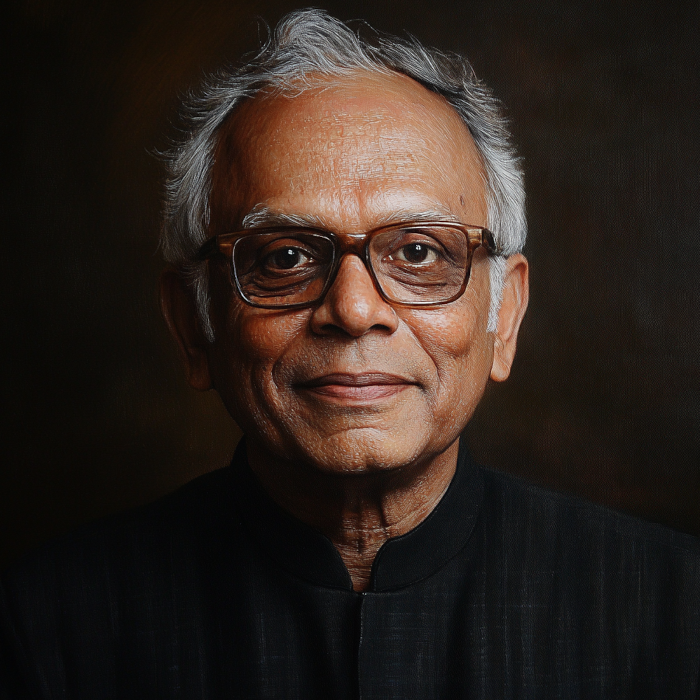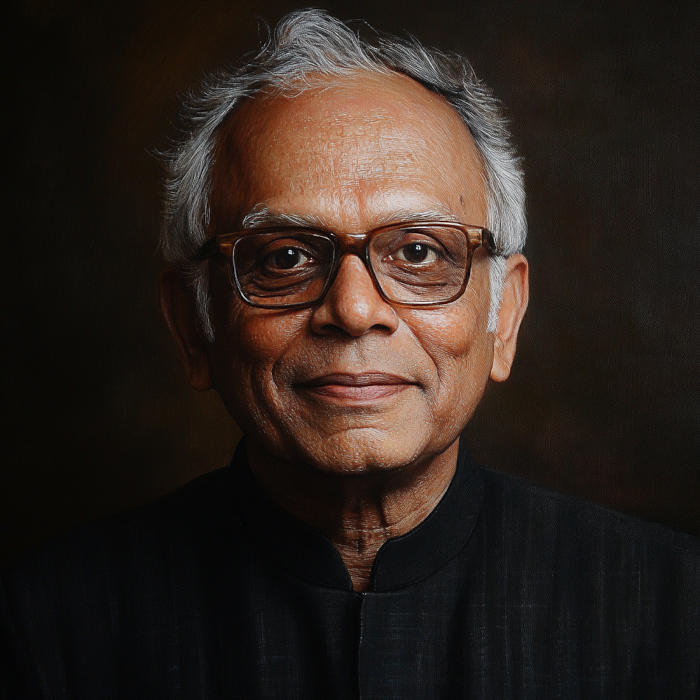


Shiyali Ramamrita Ranganathan (1892–1972) was a pioneering Indian librarian and mathematician, widely regarded as the father of library science, documentation, and information science in India. He is best known for developing the Five Laws of Library Science and the Colon Classification System, both of which had a profound impact on the field of library science and continue to influence the way information is organized and accessed today. Ranganathan's work laid the foundation for modern library science, not only in India but around the world, and earned him a lasting legacy as a visionary in the organization of knowledge.
Birth and Background: Shiyali Ramamrita Ranganathan was born on August 9, 1892, in Shiyali (now Sirkazhi), a town in Tamil Nadu, India. He came from a traditional Brahmin family and was interested in mathematics and teaching from an early age. His passion for learning and systematic thinking would later shape his approach to organizing knowledge.
Education: Ranganathan pursued a degree in mathematics from Madras Christian College and later completed his master’s degree in 1916. He began his career as a mathematics lecturer, teaching at various colleges in Madras (now Chennai). His background in mathematics deeply influenced his logical approach to library classification and his focus on precision and systematic arrangement.
Appointment as University Librarian: In 1924, Ranganathan was appointed as the first University Librarian of the University of Madras, a position that led him to the world of library science—a field he was initially unfamiliar with. During his early days as a librarian, Ranganathan faced challenges due to a lack of formal training and knowledge of library operations. Recognizing the need to improve his skills, he traveled to London to receive training in librarianship at the University College London in 1924–1925.
Transformation through Training: During his time in London, Ranganathan was introduced to Western concepts of library management, classification systems, and cataloging. The experience transformed his understanding of libraries as institutions for public service rather than mere book repositories. Inspired by this new perspective, Ranganathan returned to India determined to revolutionize library science and make libraries accessible to all.
In 1931, Ranganathan formulated the Five Laws of Library Science, which have become foundational principles for library services worldwide. The Five Laws are:
Books are for use: This law emphasizes the importance of making books accessible to readers, rather than keeping them locked away. Libraries should be places where people can easily access information.
Every reader his/her book: This law reflects the idea that libraries should serve the diverse needs of all readers, providing books and resources that match their interests, abilities, and requirements.
Every book its reader: Ranganathan believed that every book has value and should find its audience. Libraries should actively help connect readers with the resources they seek.
Save the time of the reader: This principle emphasizes the efficiency of library services, suggesting that libraries should make it as easy as possible for users to find the information they need.
The library is a growing organism: Libraries are dynamic entities that must evolve over time, expanding their collections, updating their technologies, and responding to the changing needs of society.
These Five Laws laid the philosophical foundation for modern library science, guiding librarians in their efforts to meet user needs, organize information effectively, and ensure that libraries remain responsive and relevant institutions.
Ranganathan's Colon Classification System, introduced in 1933, was a revolutionary approach to organizing library materials. Unlike existing classification systems that used a rigid hierarchical structure, the Colon Classification System was faceted, allowing for more flexibility in organizing materials. The system used five fundamental categories, known as PMEST:
The Colon Classification used a combination of letters, numbers, and symbols (including the colon, hence the name) to create notations that represented the different facets of a topic. This system allowed for a more nuanced classification of materials, accommodating complex subjects and interdisciplinary topics. It was particularly well-suited for specialized libraries and is still used in various forms today.
Ranganathan played a key role in promoting the development of library services in India. He was instrumental in establishing the Madras Library Association in 1928 and was a strong advocate for public libraries as tools for national development and education. Ranganathan's efforts led to the introduction of public library legislation in several Indian states, ensuring that library services were available to all citizens.
He also founded the Indian Library Association (ILA) in 1933 and worked tirelessly to promote library education and professional standards for librarians in India. His work emphasized the need for well-trained library professionals who understood the importance of providing high-quality services to users.
International Influence: Ranganathan’s contributions to library science were not limited to India. He gained international recognition for his work and was invited to lecture at various institutions around the world. His ideas on classification, cataloging, and library management influenced the development of library science programs in countries outside India, particularly in the United States and Europe.
Awards and Recognition: Ranganathan received numerous accolades for his contributions to the field of library science. He was awarded the Padma Shri by the Government of India in 1957 in recognition of his services. He was also honored by international library organizations and was a member of several prestigious library associations, including the American Library Association.
Books and Publications: Ranganathan was a prolific writer, authoring several influential books on library science, including:
His writings laid the foundation for much of the theoretical and practical work in the field and continue to be referenced by students and professionals in library science.
Impact on Information Science: Ranganathan is often considered a forerunner of information science, as his ideas on classification, indexing, and the organization of knowledge laid the groundwork for modern information retrieval systems. His faceted approach to classification influenced the development of faceted search in digital libraries and databases, a concept widely used today in online information retrieval.
National Library Day: In honor of his contributions, August 12—Ranganathan’s birthday—is celebrated as National Library Day in India.
Ranganathan’s legacy endures not only in libraries across India but also in the broader field of information science worldwide. He remains a source of inspiration for librarians, educators, and information professionals who strive to make knowledge accessible, organized, and available to all. His life's work serves as a reminder of the importance of libraries as institutions for lifelong learning, empowerment, and societal progress.

We use cookies
We use cookies and other tracking technologies to improve your browsing experience on our website, to show you personalized content and targeted ads, to analyze our website traffic, and to understand where our visitors are coming from. Privacy Policy.